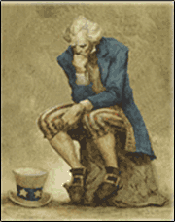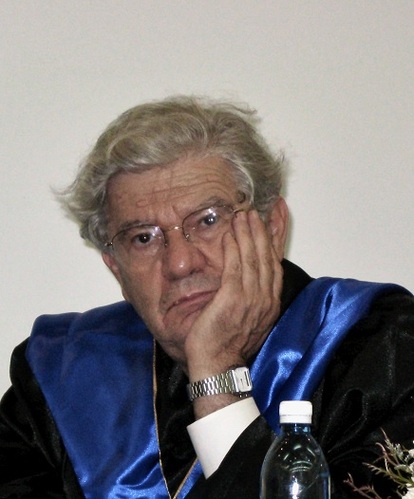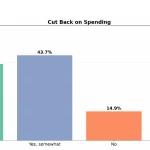
–>
March 30, 2023
Israel’s recent “judicial reform crisis” has deep roots going back decades. Not surprisingly, they originate within the Israeli Left.
‘); googletag.cmd.push(function () { googletag.display(‘div-gpt-ad-1609268089992-0’); }); }
Israel is teaching us all a new lesson in modern western democracy as checks and balances are thrown out the window. Western media will not tell you that only in Israel do Supreme Court judges appoint themselves and write their own checks and balances.
The real revolution in Israel took place in 1992 when then-Israeli Chief Justice Aharon Barak began a one-man legal uprising, assigning himself and his judicial colleagues the power to rewrite or veto any decision, policy, or appointment made by Israel’s elected leaders.
Who elected Justice Barak and who gave him these vast powers? He did.
‘); googletag.cmd.push(function () { googletag.display(‘div-gpt-ad-1609270365559-0’); }); }
Until the 1990s, Israeli Knesset members chose the Supreme Court, but then Barak convinced the elected leaders that a committee — with a built-in veto of three sitting Supreme Court judges — should henceforward pick all judges.
This was not a written law, but it became a tradition etched in Mediterranean marble, an unwritten veto carved in stone more than the Ten Commandments God gave Moses before Barak gave himself the role of Moses.
The result was that Judge Barak picked several generations of judges in his own image, often his own students, and that image was usually a secular Ashkenazi Jew with left-wing political views straight out of Yale Law School, where Justice Barak spent his vacations.
Few if any religious Israelis got on the Supreme Court, even fewer non-Ashkenazi Israelis, and certainly no independent or Right-oriented jurists. Most Court appointees turned out to be pale and mediocre echoes of Barak himself, judges who cited Yale Law, not Talmudic law.
“We couldn’t find any Moroccan judges who were qualified,” Barak said, (referring to non-Ashkenazi Jews). It was a stunning comment showing Barak’s own deep prejudices.
Judge Barak also famously rejected Professor Ruth Gavison, a very highly regarded law professor, who was praised by both lawyers and legal scholars across the spectrum for her independent and creative thinking.
‘); googletag.cmd.push(function () { googletag.display(‘div-gpt-ad-1609268078422-0’); }); } if (publir_show_ads) { document.write(“
“She has an agenda,” said Barak about Professor Gavison, setting a standard for uniform thought — his thought.
Barak also could not seem to find Jewish principles or sources for any of his decisions. A review of Barak’s many decisions hardly unearthed a reference to the Bible, the Talmud, or Jewish responsa literature, but there were many citations from Europe to Timbuktu.
Justice Barak’s own personal, partisan political agenda was again on display when he recently bemoaned the fact that the far-left Meretz Party failed the cut-off margin to enter Israel’s Knesset. It was a strange remark from a supreme court justice, but maybe not such a surprise.
 Barak’s comment basically buttressed claims by rightist critics that Barak had turned the Supreme Court into a branch of the Meretz Party whose very pro-Palestinian and deeply anti-religious tone determined decisions on Sabbath laws, kosher food, and territorial questions.
Barak’s comment basically buttressed claims by rightist critics that Barak had turned the Supreme Court into a branch of the Meretz Party whose very pro-Palestinian and deeply anti-religious tone determined decisions on Sabbath laws, kosher food, and territorial questions.
Since 1977, the Israeli Right has won almost all national elections, but the final word on policy has shifted from the Knesset, Israel’s parliament, to the Israeli Supreme Court that leans to the Left, often the far Left, especially since Barak’s rise to power in 1992. No matter who wins the election, Barak and his colleagues get the final vote.
In an exhaustive expose for the newspaper Maariv, reporter Kalman Liebeskind showed that Arabs — Palestinian or Israeli Bedouin — almost always seemed win land cases in Israel’s Supreme Court, even when the evidence (contracts and aerial photos, for example) proved that they had grabbed land illegally.
At the same time, Liebeskind proved that Israeli Jewish “settlers” were removed or barred from land even when they had written deeds and photographs to prove ownership.
Like the Meretz Party, Barak and his court successors have blocked various Israeli government attempts to stop cross-border infiltration and to allow removal of illegal infiltrators, even though there is hard and fast Israeli legislation that allows and even mandates such action.
Using the nebulous concepts of “international law” or “international norms,” Israel’s Supreme Court has sounded more like a European Union tribunal or a UN seminar than an Israeli court enforcing Israeli law. Meanwhile, neighborhoods in southern Tel Aviv and other Israeli cities have become hotbeds of simmering criminal activity by illegal immigrants from Africa.
The first part of the current proposed “judicial reform” that the Left and the media have dubbed a “judicial revolution” was meant to restore real legislative oversight to the picking of judges, and not allowing judges to pick their own friends and favorites
For almost 30 years, there has been a growing view in Israel — on the Right, in the Center, and even on the Left — that Justice Barak essentially usurped powers and has kept on expanding them as he asserted in Hebrew “ha-kol Shafit“ — “everything can be judged [in my court].”
With Barak and his students, the Israeli Left (which lost in 1977) still had an ace up its sleeve.
“Everything can be judged” meant that Barak and his colleagues often vetoed military maneuvers, budget decisions, staff appointments for the most tenuous of reasons, based on appeals by some of the zaniest extra-parliamentary organizations, especially on the Left.
Politicians are often corrupt and devious, but in order to be dangerous — really dangerous — they have to be elected and then re-elected. However, with a lifetime job as supreme court judge, judicial activists can be even more dangerous over time.
Recently, Barak asserted a judicial prerogative that even the legendary U.S. Supreme Court Chief Justice John Marshal could not have imagined — Judicial Preview, not Judicial Review.
“Why didn’t they ask for my advice,” demanded Justice Barak, offended that Israeli legislators considered laws without approval from Israel’s longest serving non-elected super-legislator.
“I would have told them what I thought.” Maybe we should call it Judicial Chutzpah!
As we have seen in recent days, stolen judicial prerogatives, like stolen jewels, are not easily reclaimed.
Image: Jonathan Klinger
<!– if(page_width_onload <= 479) { document.write("
“); googletag.cmd.push(function() { googletag.display(‘div-gpt-ad-1345489840937-4’); }); } –> If you experience technical problems, please write to [email protected]
FOLLOW US ON
<!–
–>
<!– _qoptions={ qacct:”p-9bKF-NgTuSFM6″ }; ![]() –> <!—-> <!– var addthis_share = { email_template: “new_template” } –>
–> <!—-> <!– var addthis_share = { email_template: “new_template” } –>





